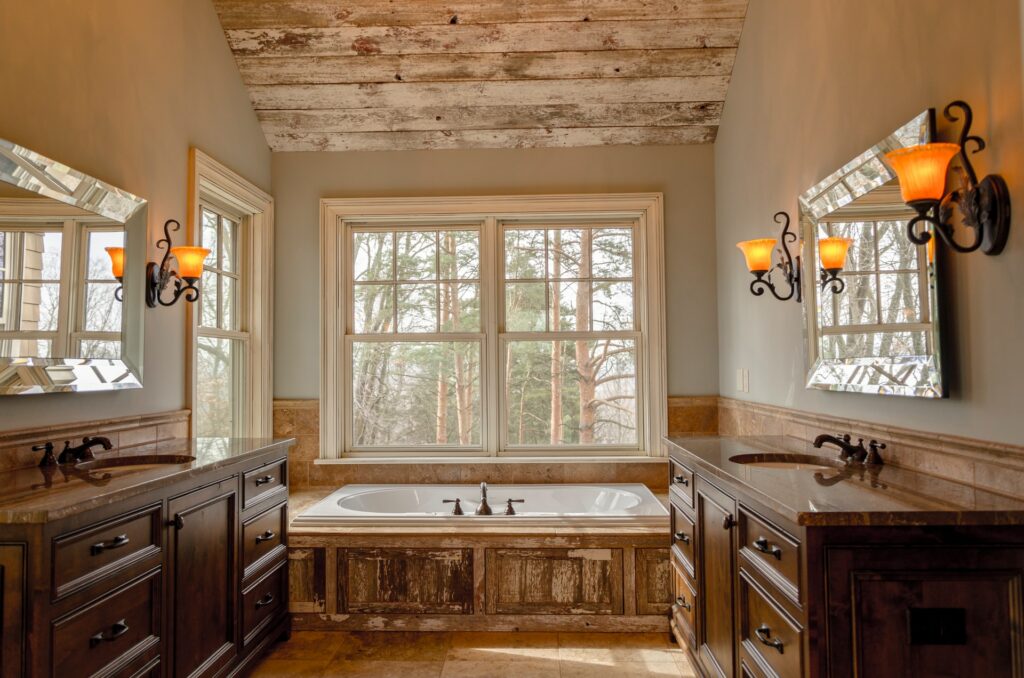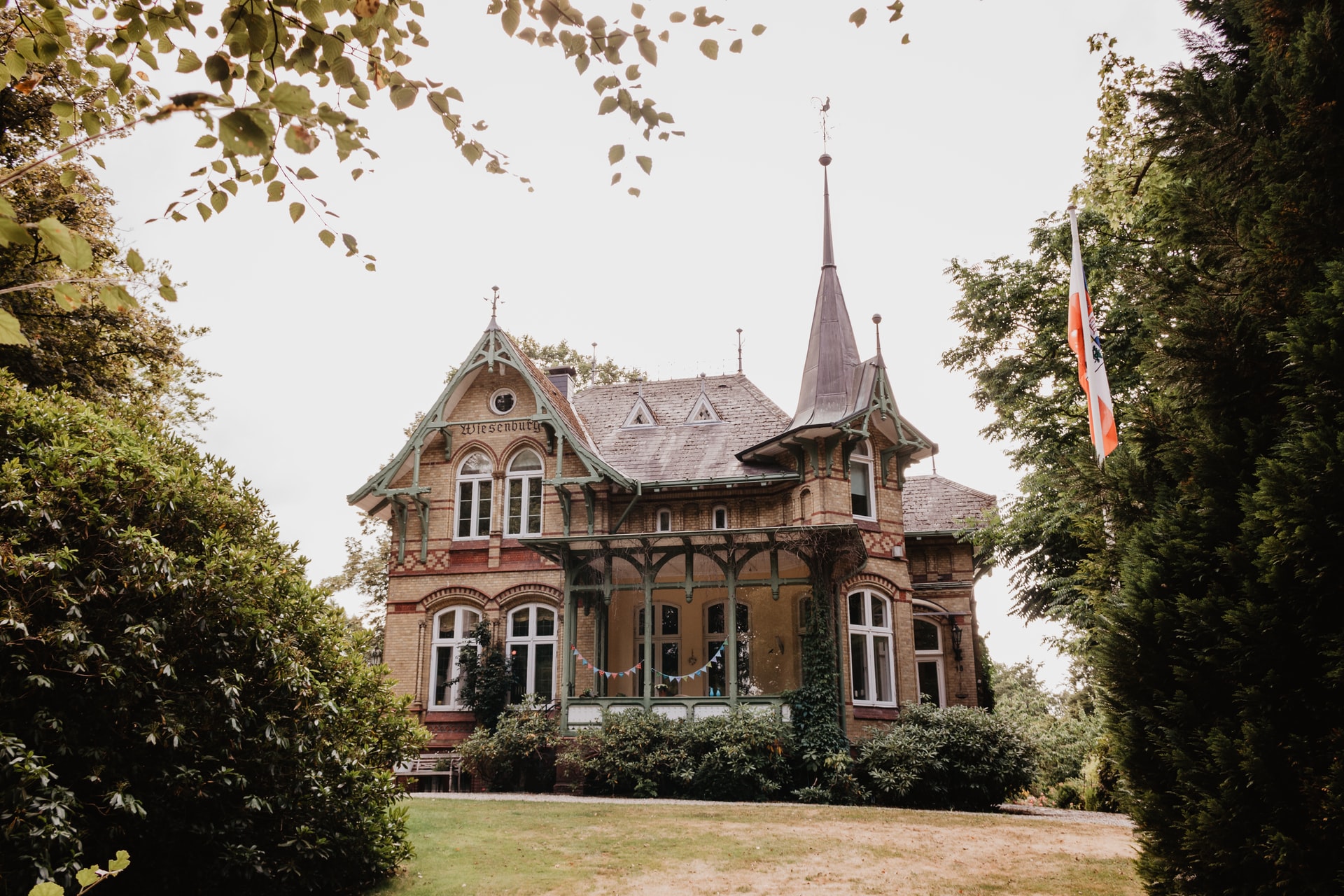Pros and Cons of Owning a Historic Home
June 23, 2022
Owning a historic home is a unique opportunity to be the steward of a piece of history. However, there are many potential buying a historic home problems just like there are many benefits. In this blog post, we answer the question of what is a historic home and go through the pros and cons of owning one.
What is a Historic Home?
A house being old isn’t enough to make it a historic home. Some guidelines must be met in order for a house to receive this designation. To become a historic home, a property has to be added to The National Registry of Historic Places, an official list of properties recognized by the Federal Government as worthy of preservation. The National Parks Service runs the official list and they consider several factors when designating a property, including:
- Age: How old the property is (50 years or longer on average)
- Integrity: Does it still look relatively the same as it did in the past?
- Significance: Why is the property culturally significant?

Pros and Cons of Owning a Historic Home
Historic homes are one-of-a-kind because of their age, charming architecture, and cultural significance. However, buying a historic home isn’t peachy keen all the time. In fact, many homeowners find that the cons of owning a historic home far outweigh the pros while others find that the pros make the cons seem manageable. Here’s a look at the pros of owning a historic home.
Pros of Owning a Historic Home
1. Your House Has Cultural and Historical Value
As the world progresses, many things are left behind or forgotten. Historical homes are essential because they give us a physical connection to the past. When you buy a historic home, you are buying a piece of the past. The house may have a connection to the American Civil War, World War I, or The Colonial Era. It is a physical reminder of an event or time period that a community relies on to remember their heritage. You are keeping the history of the home alive and will learn a lot about the history of the area.
2. Historic Homes Benefit The Community
Historical homes can play a huge role in a community. They can be used as a bed and breakfast, an attraction, or as a historical reminder of an event, but if the historical home is a part of a historical district, then the importance of the home becomes even greater. A historical district is a group of properties designated by the government as having historical significance. Nearby communities will have a great appreciation for historical districts and as a historical homeowner, you will get the opportunity to get more involved in the community. Even without a historical district, communities tend to have a vested interest in preserving historical homes and you will often get a lot of support from the local government and residents.
3. Historical Homes Have Classic Beauty and Charm
The most obvious benefit to owning a historical home is their classic beauty and charm. These homes have intricate details that you won’t find in any modern home. Features like stained glass windows, a clawfoot tub, or beautiful heavy wood doors. Each historical home is unique and the details are what make them so special. Many historic homeowners take pride in maintaining the original features of their home while others enjoy mixing old and new to create a unique style. There are so many subtle details in a historic home and you may not notice all of them for years.
4. Financial Benefits
Owning a historic home doesn’t just give you a sense of pride, it can also offer some tangible financial benefits. In many cases, the government offers tax credits and other incentives to homeowners who are willing to rehabilitate and re-use historic buildings. The Federal Historic Preservation Tax Incentives Program was created by the National Park Service to encourage private investment into historic buildings. For example, the program offers a 20% income tax credit for historic buildings that are used for income-producing purposes.
State and local governments can also offer incentives for historic homeowners. Over 35 U.S. states have adopted state tax credit programs to encourage people to buy historical homes instead of newer houses. State tax credits are designed to assist with the costs of renovations and repairs that come with preserving the historic house.
According to David Curtis of the Acquisitions Associate with Clocktower Tax Credits in Massachusetts, historic homeowners can expect 15% – 30% of renovation costs returned through state tax credits.
Cons of Owning a Historic Home
Historic homes are old, and with age comes a list of structural problems. As a historic homeowner, you can expect to deal with a few more issues than the average homeowner. Issues that are costly and can take a long time to fix. Here are the cons to owning a historic home.
1. Costly Repairs
Historic homes require ongoing maintenance and repairs to keep them in good condition. Tax credits can help with these renovation costs but the repairs can still be expensive. Many of the problems with historic homes are due to outdated or failing systems like plumbing, electrical, heating/cooling along with the construction materials that have endured for decades. For example, if your historic home is still on a fuse box, that’s a sign of outdated wiring, and rewiring throughout the house will be an expensive renovation.
Here is a list of recommended resources for people who own and plan to renovate older houses.
2. Limited Contractors
There are a lot of contractors who can work on a house but only a select few who have the expertise to work on a historic home. Historical properties need to be preserved which means that the work must be done correctly to maintain the home’s value and integrity. You may have a hard time finding a contractor who is familiar with renovating historic homes and you may end up paying more for their services.
3. Restrictions on Design Freedom
As part of the initiative to preserve historical buildings, there are usually restrictions in place that dictate what changes can and can’t be made to the property, especially for the exterior. The National Register of Historic Places works with cities and localities to regulate alterations of buildings that are designated as historical. These regulations are in place to protect the traditional integrity of the property. If you live in a historical district, then the regulations can be even more strict. Before going through with any renovations, check with the local historic commission to see what is and isn’t allowed. It’s the local historic commission’s job to issue a Certificate of Appropriateness that approves changes to the exterior of a historic building.
4. Unwanted Surprises
It’s incredibly important to get a home inspection during the buying process for historic homes because you never know what will be discovered. Many of the problems with historic homes are hidden, such as water damage, rodents, termites, lead paint, and asbestos. These problems can be expensive to fix and could endanger your health if not taken care of properly. Make sure to hire a vetted home inspector during the home buying process to get a full understanding of the home’s condition and what repairs will need to be made.
5. Expensive Insurance
Historic homes come with a lot of risks and many traditional insurance companies can’t cover the many risks that come with owning an old home. That’s why it’s important to find insurance that is specifically for historic homes. This special type of insurance is usually more expensive than traditional insurance and if there are structural issues, then rates could increase by a substantial amount.
Buying a Historic Home Requires Expert Help
Buying a house is already one of the most complicated and expensive purchases you’ll make in your lifetime but buying a historic home comes with its own set of challenges. There is an ongoing risk of extra costs from renovations, repairs, and maintenance. While tax credits and government incentives may offset some of the costs, some renovations are too expensive for tax credits to make a dent.
If you’re thinking of buying a historic home, then you need to work with a real estate professional that can help you consider all of the pros and cons. A good real estate agent will also have vetted home inspector recommendations so that you can get a thorough understanding of the home’s condition before buying.
Want to work with a good real estate agent? Then you’ll want to work with a Negotiator. Negotiators are not like most real estate agents. They are some of the top real estate agents in the US and were handpicked to join the Negotiator Recognized Partners program because of their esteemed reputation in their field. Learn more about Negotiators here.

